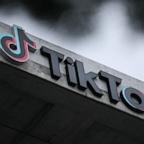Happy Hour Banned in Boston, Endangered Elsewhere
Find out which states ban discounts on boozy drinks.
Feb. 6, 2013 -- Puritanism prevails in Massachusetts, where state regulators recently decided to extend the state's ban on happy hour.
Some restaurant and bar owners had begged to have the ban removed, so that they, by offering discount drinks, could better compete against new casinos that give drinks to gamblers for free.
Regulators kept the ban, on the grounds that to remove it would be to encourage over-consumption and thus endanger public safety.
The surprise isn't that Massachusetts—a famously straight-laced state with eight "dry" municipalities that ban liquor outright—doubled-down on happy hour. It's that many other states, counties and municipalities across the United States have done likewise.
READ: Hangover recipes from 'Good Morning America'
As of May, 27 states had happy hour prohibitions. Then, in June, Kansas changed course and decided to allow it, making the total 26.
Across the U.S., banning happy hour is not the only form of prohibition. Kansas, for example, though it now permits happy hour, still prohibits all of the following: giving away alcoholic drinks, reduced-price specials, all-you-can-drink promotions, selling a bigger drink for the same price as a smaller, and offering drinking-related prizes. Other states, counties or municipalities prohibit two-for-one specials. Click here for a chart showing what states prohibit what.
David Hanson, a professor of sociology at the State University of New York, Potsdam, says public attitudes toward alcohol have been trending negative since the 1980s, driven by an increasingly unforgiving attitude toward drunk driving. According to the Boston Globe, it was a horrific 1984 drunk driving fatality that resulted in the Masssachusetts' happy hour prohibition: a woman in Braintree was killed by a driver who had consumed seven beers at a happy hour event, reports the Globe.
Read: Can You Cure a Hangover?
Hanson says that any unit of government can decide to ban or restrict drinking. The result, in Texas, for example, is a bewildering crazy-quilt of rules that changes as you drive from one city to another. "So many jurisdictions, so many rules!" exclaims the professor. Driving from, say, the panhandle to the gulf, one county may be wet, then next dry, and a town within that dry county may be wet.
Journalist and author Stephanie Schorow has written a book about Boston—the city which, despite its having no happy hour, has been voted "Drunkest City in America" two years running by the Daily Beast.
Schorow's "Drinking Boston: A History of the City and its Spirits" celebrates the ingenuity of drinkers who have found every way to circumvent every type of prohibition. They include a saloon keeper who, at a time in the misty past when selling booze was illegal, announced that anyone who bought a ticket could come and see his amazing striped pig.
The pig—sequestered in a tent and wearing painted stripes—wasn't much to see. But patrons poured in, once word got around that the ticket entitled entrants to a free beer.
Writer Rachel Kossman, in a Boston.com blog post a few days ago, described present day solutions analogous to the pig. She reviewed local restaurants that, while not offering discounted drinks, offer ridiculously cheap food instead. She and a friend, she writes, managed to enjoy a dinner-for-two that cost $9.84, plus drinks.
Declares a jaunty Schorow, "We don't need no stinkin' happy hour."




